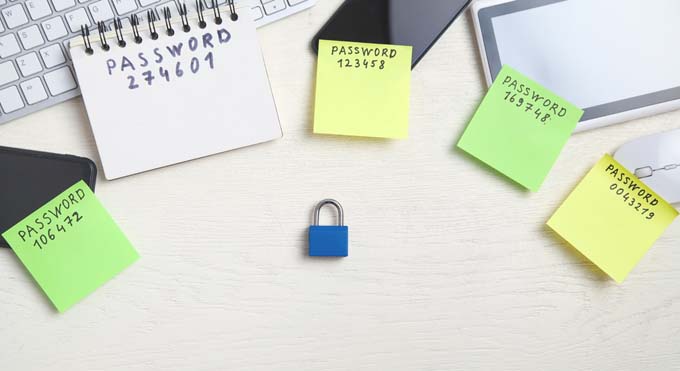Too many passwords overwhelm people
Keeper Security publishes the new study "Fortifying Cyber Resilience: Insights Into Global Cybersecurity Practices". The survey of more than 6,000 people worldwide revealed that 62 percent of respondents internationally are concerned about managing too many passwords, accounts and logins.

Overconfidence in their own cyber security habits
Many people are overconfident about their cybersecurity practices - especially when it comes to password management. The survey shows that 85 percent of those surveyed internationally and even 91 percent of those surveyed in the DACH region believe that their passwords are secure. At the same time, however, more than half admit that they share their passwords with others. In addition, 64 percent worldwide and 70 percent of those surveyed in DACH are confident in their knowledge of cyber security, although 41 percent of respondents use their passwords multiple times and 24 percent write their passwords down. In DACH, slightly fewer (34%) use their passwords multiple times, while 27% write down their access data manually.
Popular password management practices
Risky password management practices underscore the disconnect between widespread confidence in one's cybersecurity and the actual state of cyber hygiene. Keeper's research shows that the following password management practices are the most common:
- Remembering passwords (26 percent internationally, 8 percent in DACH)
- Write down passwords (24 percent internationally, 27 percent in DACH)
- Saving passwords in a browser or a note app on the cell phone (19 percent internationally, 15 percent in DACH)
While many people believe that their passwords are secure, their behavior shows that there is a great need for advanced tools and comprehensive education. Using a password manager, creating strong and unique passwords for each account and enabling multi-factor authentication (MFA) wherever it is available can significantly improve personal cybersecurity.
Widespread: Shared use of passwords
Despite the crackdown on streaming services, more than a third of international and DACH respondents (34%) admit to sharing passwords for streaming sites with others. The other most commonly shared passwords include:
- Shopping accounts (22 percent internationally and in DACH)
- Personal e-mails (20 percent internationally, 16 percent in DACH)
- Social media (16 percent internationally, 15 percent in DACH)
- Emails at work/school (16 percent internationally, 17 percent in DACH)
- Passwords/pins for bank accounts (15 percent internationally and in DACH)
- Productivity platforms for work (13 percent internationally, 11 percent in DACH)
Still a long way to go
The major challenges to improving global cyber hygiene highlight the need to educate on the risks of insecure password sharing and management and to utilize solutions to strengthen cyber resilience. Although industry experts and cybersecurity authorities recommend using a secure password manager to store, generate and securely share passwords, Keeper's study shows that only 12 percent of respondents worldwide do so. These tools are crucial for the secure management of online accounts and identities.
"The findings reveal a paradox in cybersecurity: people feel confident in their cybersecurity knowledge, yet are often the target of cyberattacks and fraud," said Darren Guccione, CEO and co-founder of Keeper Security. "This discrepancy underscores that knowledge alone is not enough to mitigate cyber risks. Using tools like password managers and following best practices are critical to reducing cyber risk."
The Keeper study highlights the challenges security professionals face when it comes to educating people to take timely action to protect themselves online. Empowering everyone through education and technology is critical to protecting sensitive data and defending against today's sophisticated cyberattacks and online scams. By being informed and using best practices, people can actively protect themselves against the most common cyber threats.
Source: www.keepersecurity.com









